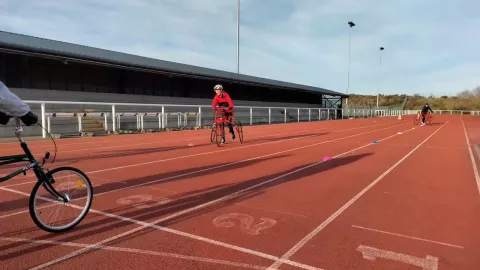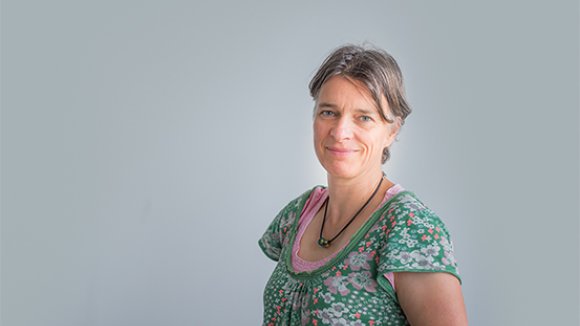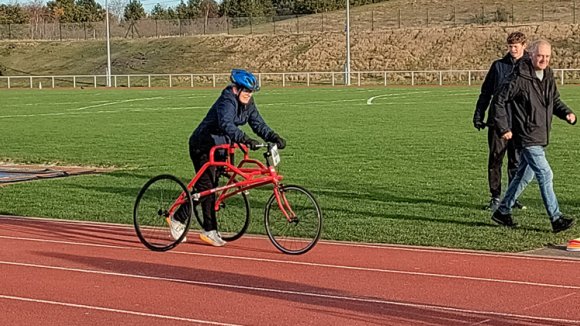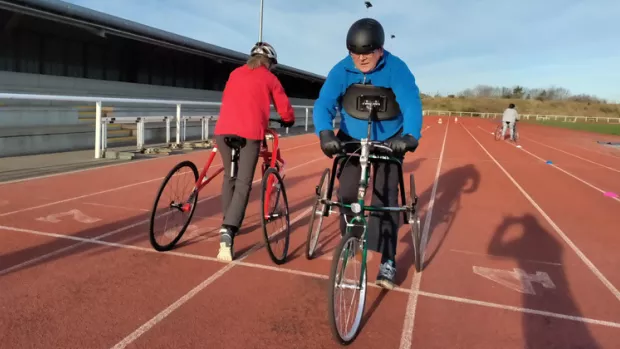
Taking it in your stride: how an adapted sport could help people with MS get active
Professor Marietta Van der Linden is a researcher at Queen Margaret University in Edinburgh. She told us about her recent research into an adapted sport called frame running, which could help people with MS who experience walking difficulties.
We know staying or becoming more active has a range of benefits, including helping to manage MS symptoms such as fatigue. It also helps with mental health and many people enjoy the social aspects.
However, for a variety of reasons it can be difficult for some people with MS to engage in physical activity.

My research focuses on exercise options for people living with MS and other neurological conditions. I want to help more people with MS benefit from physical activity.
Frame running
Our recent research looked at an adapted sport called frame running. I found out about frame running as an activity for young people with cerebral palsy in 2016. It struck me as something that could be suitable for adults with MS, especially those who experience difficulties walking.
We investigated whether it’s a feasible and safe physical activity option for people with MS who experience walking difficulties. And whether taking part in frame running has any benefits on MS symptoms, or the ability to perform activities of daily living.
I wrote the application to fund this research in the aftermath of the COVID-19 pandemic. So because it’s a type of activity which is mostly done outdoors we were able to get started straightaway.
Find out more about Marietta’s research
As a result of the trial we now have a group of frame runners who meet every week, sometimes twice weekly. I’m always amazed at their dedication to attend the training sessions whatever the Scottish weather throws at them!

After over 12 weeks of frame running, my fatigue and aerobic capacity have improved. Moving about takes less effort now.Rhona, research participant
What’s next?
In my view, what’s needed now are initiatives to make it easier for people to become active. This includes creating and promoting accessible activities, either in the community or people’s own homes. And working with health care providers to support people with MS in staying or becoming more active.
We hope to continue to explore the possible benefits of taking part in frame running. For example, the effect regular participation can have on symptoms such as foot drop. This knowledge will improve our understanding of the potential benefits of frame running. Importantly it will also give us more insight into the motor problems of people living with MS and how these can be managed.
I’m very grateful to the supporters of the MS Society who made this grant possible. I hope our study shows that even small grants can go a long way to directly impact the lives of people with MS.





